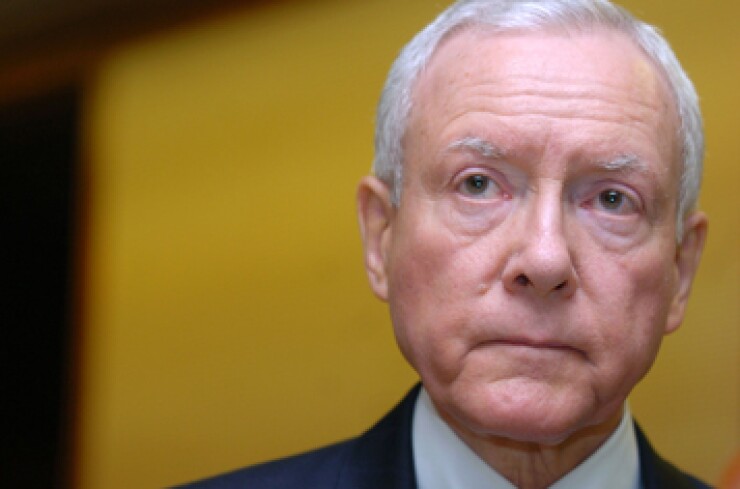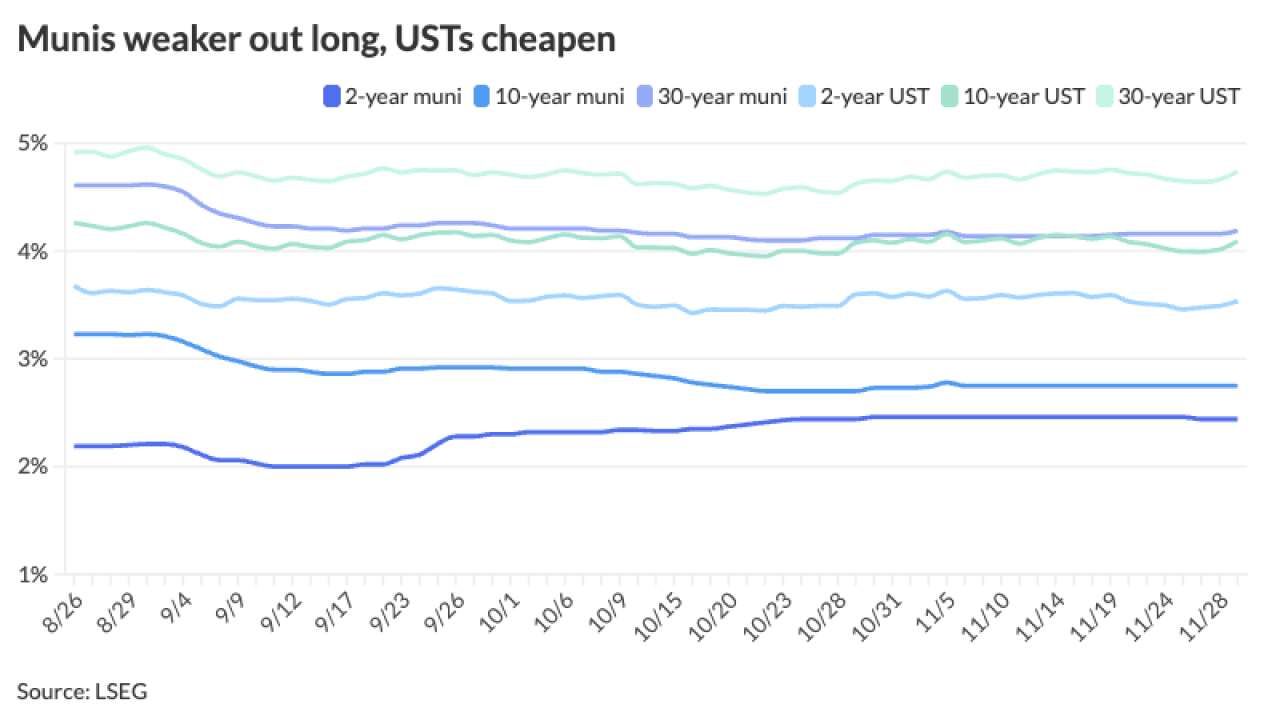
Puerto Rico Gov. Alejandro García Padilla this week bristled at a deadline to provide information to the U.S. Congress, while a candidate to succeed the governor sent an unsolicited response to the information request.
"I do not accept ultimatums from anyone and that includes [Sen.] Orrin Hatch," García Padilla said Wednesday at a news conference in Puerto Rico. He was referring to the Senate Finance Committee chair's March 1 deadline for a response set in a Feb. 10 letter to the governor.
A finance committee spokesperson said on Thursday that Garcia Padilla's office has suggested it is working to meet the Utah Republican's request despite the missed deadline.
"The chairman looks forward to receiving complete and detailed information," the spokesperson said. "Such data are imperative for the U.S. Congress to develop a fiscally responsible solution to address the territory's growing economic and financial challenges."
Garcia Padilla's comments came a day after Puerto Rico gubernatorial candidate Ricardo Rossell- Nevares sent a letter to Hatch outlining his proposals for handling Puerto Rico's debt and economic crisis.
Rossell- Nevares is one of two candidates for governor running in the New Progressive Party primary that will be held June 5. The winner will run in the general election on Nov. 8. This fall he polled at or near the top of the list of candidates.
Hatch's first question to García Padilla was: "Do you agree that Puerto Rico's [general obligation] debt, according to Puerto Rico's constitution, has repayment priority over any other debt repayment and any other debts of Puerto Rico?"
Hatch requested information regarding Puerto Rico's ability to fund several of its major pension systems. Hatch also wanted to learn about the commonwealth's scheduled annual debt service payments as well as its expenditures on health, public housing, and welfare.
Hatch said he wants to know what progress has been made to impose cost and expenditure controls for education and other departments, after an unaudited 2013 financial report for Puerto Rico said Department of Education amounted to 25% of the commonwealth's general fund budget.
Hatch also asked for specifics of what form technical assistance to Puerto Rico from the U.S. Treasury has taken.
In his letter, Rossell- Nevares called for a Joint Commission and Debt Management Authority with both federal and Puerto Rican government participation. In the authority the U.S. Internal Revenue Service would collect a wide array of Puerto Rican taxes and feed the revenues to the authority.
The authority would issue new bonds based on these revenue streams. It would use the money from its bond sales to "retire commonwealth obligations through open market purchases, tenders, exercise of rights of redemption, exchanges, or any such other means as the [authority] shall determine through negotiations with bondholders."
If certain events were to occur, the federal government would replace the authority with a federal fiscal control board.
Additionally, Rossell- Nevares called for the government to adopt a human resources consolidation, go through a zero-based budgeting process, and use technology to make itself more efficient.
Rossell- Nevares said the U.S. government should provide assistance by eliminating an electronic information requirement for shipments between the United States and the island, increase the portion of federal contracts that go to Puerto Rico from 0.2%, and add Puerto Rico to an income tax agreement with Spain, which would exempt Spanish companies operating in Puerto Rico from paying taxes to both Spain and the United States.
The U.S. government should provide parity to island residents in Medicaid funding and the Earned Income Tax Credit, the gubernatorial candidate said.
Finally, Rossell- Nevares said, the U.S. Treasury should provide a "modest amount of interim financing as it did to General Motors and Chrysler during the 2008 financial crisis and, more applicably, to Washington, D.C., during its fiscal crisis."





